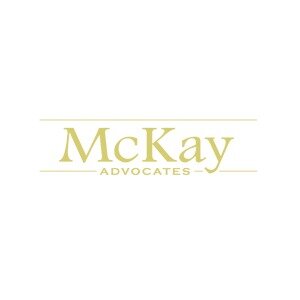Best Art & Cultural Property Law Lawyers in Nakuru
Share your needs with us, get contacted by law firms.
Free. Takes 2 min.
List of the best lawyers in Nakuru, Kenya
About Art & Cultural Property Law in Nakuru, Kenya
Art & Cultural Property Law in Nakuru, Kenya is an evolving field that addresses the creation, preservation, protection, and transfer of artistic and cultural objects. This area of law deals with the regulation of ownership, intellectual property rights, and the protection of cultural heritage from unlawful acquisition and exportation. As Nakuru is rich in cultural heritage and home to various communities with unique traditions and artistic expressions, the local legal landscape aims to safeguard these cultural assets while promoting fair trade and appreciation of the arts.
Why You May Need a Lawyer
There are several scenarios where you might need legal assistance in Art & Cultural Property Law:
- Disputes over the ownership of artwork or cultural property.
- Negotiation and drafting of contracts related to the sale, loan, or exhibition of art and cultural objects.
- Protection of intellectual property rights, including copyrights for artists and creators.
- Advisory services for charitable donations of art or cultural items.
- Legalities concerning the export or import of art and archaeological finds that require adhering to international conventions and local regulations.
- Recovery or restitution claims for cultural assets that were unlawfully appropriated during historical periods of conflict or colonial rule.
- Resolving legal issues concerning the digitization and online distribution of cultural and artistic works.
Local Laws Overview
In Nakuru, and Kenya at large, the legal framework for Art & Cultural Property is informed by both national legislation and international agreements:
- National Museums and Heritage Act: This act governs the preservation, protection, and management of cultural heritage and provides for the establishment of museums and heritage sites.
- Cultural Heritage Convention: Kenya is a signatory to various international treaties focused on protecting cultural property during armed conflict and prohibiting illicit trafficking.
- Intellectual Property Law: Covers copyright, trademarks, and patents as they pertain to artistic creations and enforce the rights of artists and creators.
- Local Ordinances: Specific regulations in Nakuru that deal with the management and preservation of local heritage sites and cultural practices.
Frequently Asked Questions
1. What constitutes cultural property under Kenyan law?
Cultural property generally includes artistic works, artifacts, historic sites, and intangibles like oral traditions, which hold cultural significance.
2. Can I export a cultural artifact from Kenya?
The export of cultural artifacts from Kenya is strictly regulated and usually requires permission from the National Museums of Kenya to ensure compliance with both national and international laws.
3. How do I protect my artwork from being copied?
Artists can protect their work through copyrights, which provide exclusive rights over the reproduction, distribution, and public performance of their creations.
4. What should I do if I believe a cultural object was unlawfully taken from Kenya?
You should report the matter to the National Museums of Kenya and potentially seek legal counsel to explore restitution options.
5. Are there tax benefits for donating art to a museum in Nakuru?
Yes, donating art to accredited institutions can offer tax incentives, but it is advisable to consult with a tax advisor for specifics.
6. Is it possible to sell art that includes traditional cultural expressions?
Yes, but permissions may be needed, especially if the art incorporates protected cultural symbols or practices.
7. How do I obtain a license to exhibit art in Nakuru?
You should contact local authorities for any exhibition licenses required to meet regional legal requirements.
8. What happens to found artifacts in Nakuru?
Any found artifacts must be reported to the National Museums of Kenya as they are considered national heritage.
9. Who enforces cultural property law in Nakuru?
The enforcement is handled by a combination of national and regional bodies, like the National Museums of Kenya and local heritage councils.
10. How do I handle a dispute over a commissioned artwork?
Such disputes are best resolved by referring to the terms of the contract, and legal advice may be necessary if the contract terms are contested.
Additional Resources
For more information or assistance, consider reaching out to the following organizations:
- National Museums of Kenya
- Kenya Copyright Board
- Ministry of Sports, Culture, and Heritage
- Local Legal Aid Clinics in Nakuru
- UNESCO Kenya Office
Next Steps
If you need legal assistance in Art & Cultural Property Law, consider the following steps:
- Identify the specific legal issue or question you have regarding art or cultural property.
- Contact a lawyer who specializes in Art & Cultural Property Law in Nakuru to obtain expert advice.
- Gather all relevant documents and information related to your case for consultation.
- Explore local resources and governmental bodies for additional guidance.
- Ensure to keep up with ongoing changes in laws by attending workshops or conferences on Art & Cultural Property Law.
Lawzana helps you find the best lawyers and law firms in Nakuru through a curated and pre-screened list of qualified legal professionals. Our platform offers rankings and detailed profiles of attorneys and law firms, allowing you to compare based on practice areas, including Art & Cultural Property Law, experience, and client feedback.
Each profile includes a description of the firm's areas of practice, client reviews, team members and partners, year of establishment, spoken languages, office locations, contact information, social media presence, and any published articles or resources. Most firms on our platform speak English and are experienced in both local and international legal matters.
Get a quote from top-rated law firms in Nakuru, Kenya — quickly, securely, and without unnecessary hassle.
Disclaimer:
The information provided on this page is for general informational purposes only and does not constitute legal advice. While we strive to ensure the accuracy and relevance of the content, legal information may change over time, and interpretations of the law can vary. You should always consult with a qualified legal professional for advice specific to your situation.
We disclaim all liability for actions taken or not taken based on the content of this page. If you believe any information is incorrect or outdated, please contact us, and we will review and update it where appropriate.









